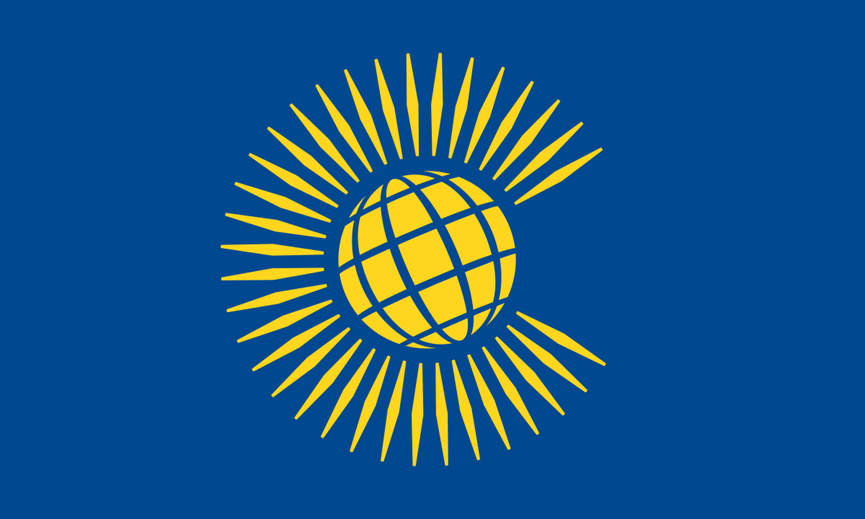Diplomatic relations between Commonwealth countries
The Commonwealth is an international organization with 56 member states. The majority of these countries were former colonies of the British Empire, and the Commonwealth developed from this. These countries are linked by the English language, culture and history. The main institutions of the Commonwealth are the Commonwealth Secretariat and the Commonwealth Foundation. The former focuses on the relations between governments of member states, while the latter focuses on non-governmental relations among member states. The head of the Commonwealth is King Charles III (Prince Charles), who is the king of 15 member states, including Canada, Australia, and New Zealand. The heads of state of these countries are the British monarch, but they elect their own governors-general who represent the king in performing the duties of the head of state with the approval of the British royal family. Citizens of Commonwealth countries enjoy benefits in member states (including Hong Kong, China), and exchanges between Commonwealth countries are conducted through high commissions rather than embassies. The close relationship among Commonwealth countries is reflected in diplomatic etiquette. The highest-ranking diplomat in a high commission is not called an ambassador but a high commissioner. A high commission is essentially an embassy but is never referred to as such. There are no legal obligations among Commonwealth member states, but there are various forms of economic, judicial and military cooperation among them. Citizens of Commonwealth countries are eligible to serve in the British armed forces, and the Commonwealth Games, held every four years, is an important event for promoting Commonwealth values. Most Commonwealth countries are small, with small island developing states accounting for about half of the total number of member states. The smallest Commonwealth member state has a population of only 12,000.
Although Egypt, Iraq, Jordan, Sudan, Somalia, Kuwait, Oman, Bahrain, Qatar and the United Arab Emirates were all former British colonies or protectorates, they have not joined the Commonwealth. Myanmar, a former British colony, is also not a member of the Commonwealth. Although the United Kingdom is the de facto leader of the Commonwealth, its leadership within the organization has gradually declined. India and Pakistan, both Commonwealth countries and the two most populous ones, have a tense bilateral relationship due to long-standing historical issues and current conflicts of interest.
Recently, some countries without an English background have joined the Commonwealth, including Mozambique (a former Portuguese colony), Rwanda (a former Belgian colony), Gabon and Togo (former French colonies), which are not English-speaking countries but have been admitted to the Commonwealth as exceptions.
The Commonwealth is the largest group of the Global South. The largest developing country member is India, with a population of 1.46 billion. The second largest is Pakistan, with a population of 255 million. The third largest is Nigeria, with a population of 230 million. The fourth largest is Bangladesh, with a population of 175 million. The population of Commonwealth countries exceeds 2.5 billion, accounting for about one-third of the world's total population, and their combined area is equivalent to one-eighth of the world's total area, which is twice the size of China. In addition, South Africa, the second-largest economy in Africa and a member of the BRICS, is also a Commonwealth member. Developed countries such as Canada (a member of the G7) and Australia (a member of the Quad) are also Commonwealth countries. The GDPs of India, the United Kingdom, Canada and Australia rank among the top in the world, being the fourth, ninth, thirteenth and sixteenth largest economies respectively.
The diplomatic representative institutions of Commonwealth countries are high commissions, not embassies. As mentioned earlier, the chief diplomat is not called an ambassador but a high commissioner. Other diplomats such as envoys are called deputy high commissioners (deputy high comms), and military attachés are called military representatives or military advisers. Commercial representatives are not called commercial counselors but commercial representatives, but their duties are the same as those of commercial counselors in embassies. It should be noted that although the diplomatic representative institutions and chief diplomats among Commonwealth countries are respectively called High Commissions and High Commissioners, they still use the terms embassy and the corresponding diplomatic titles when dealing with non-Commonwealth countries. For instance, the diplomatic titles such as Ambassador, Minister, Counsellor, and Military Attaché are used for the Pakistani and Indian embassies in China. But the diplomatic institution of Canada in Australia is called the High Commission of Canada in Australia, not an embassy, and vice versa. The duties and treatment of High Commissioners are basically the same as those of ambassadors, but sometimes they may enjoy special treatment in ceremonies. For instance, when meeting with the British monarch, a High Commissioner rides in a four-horse carriage, while an ambassador can only ride in a two-horse carriage. Any new member joining the Commonwealth, regardless of whether it has an English background or was a British colony, will automatically change its diplomatic institutions with other Commonwealth members to High Commissions after joining. For example, after Mozambique joined the Commonwealth, its embassies in the UK, Canada, Australia, India, South Africa, and Nigeria were all automatically changed to High Commissions, and its ambassadors were automatically changed to High Commissioners, and so on.


